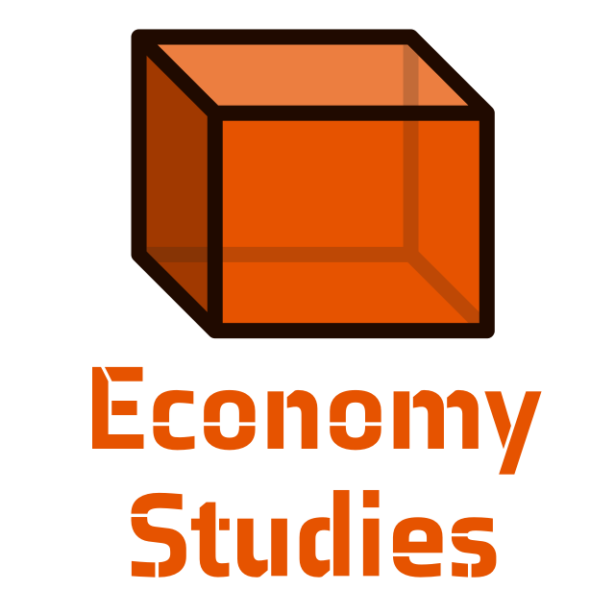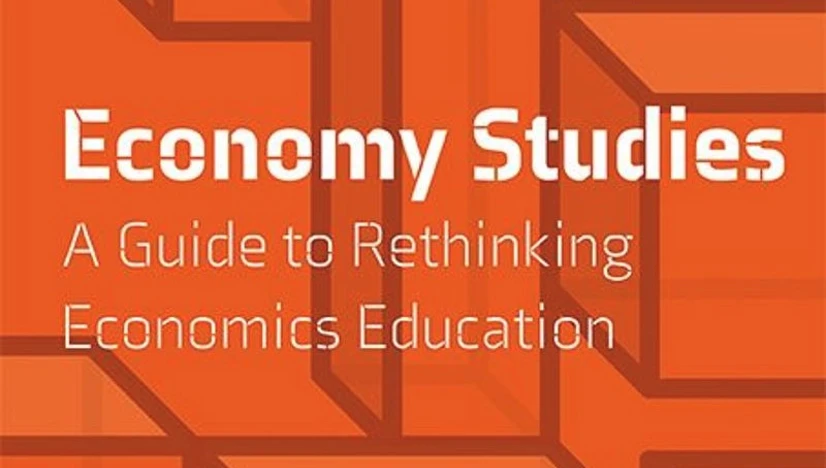Economy Studies Essential Lectures
 The Centre for Economy Studies works on improving and modernising economics education to ensure that students will be better prepared for their future careers and the societal challenges we face today and in the coming decades.
The Centre for Economy Studies works on improving and modernising economics education to ensure that students will be better prepared for their future careers and the societal challenges we face today and in the coming decades.
What are the Essential Lectures?
These teaching packs are designed for 90-minute (online or offline) sessions that can be added to existing courses. They help students become familiar with an important topic that is often neglected. At some universities lectures and sessions are typically longer than 90 minutes and at others shorter. Feel free to adjust the material to make it with your context and purpose.
What do they provide?
To enable teachers to renew their courses, Economy Studies provides ready-to-use teaching packages with:
- Lesson plans
- PowerPoint slides
- Readings
- Classroom exercises
- Exam questions
These teaching packs are open access and creative commons (CC BY), so feel free to share them with others and adjust them to better fit your purpose and context.
The materials are initially developed to fit academic economics bachelor and master programmes, but some packs like Introducing the Economy can also be used (perhaps in adjusted form) in high schools and professional and vocational educational programmes (such as ‘hogescholen’ in the Netherlands or ‘hochschule’ in Germany).
Economics 101
The aim of this lecture is to give students a feel and understanding of the economy as part of a bigger whole. We want students to reflect on, and develop some answers to the following questions: What is the economy, why is it important, how does it relate to the larger human and natural world, what are the key problems today, and what roles do its experts, economists, have?
The environment
Policy Debate: Climate Reparations
Teaching economics students about climate reparations enriches their educational experience by providing real-world relevance, promoting critical thinking, fostering interdisciplinary learning, and equipping them with valuable skills for both academic and practical applications. It also encourages ethical awareness, global perspective, and civic engagement, aligning with the broader goals of education in preparing students to address complex global challenges.
Economic Introduction to the Ecological Crisis
This lecture lays out the foundations and current state of the ecological crisis, its main drivers and who is responsible for this. Students are very likely to encounter at least some aspects of the ecological crisis in their future careers, so it is crucial for them to develop a deeper understanding of this problem, regardless of the industry they later choose to enter.
Economic Introduciton to the Ecological Crisis
Perspectives on the environment
The ecological crisis challenges the ways to understand the links between the environment, society, and the economy. To train students to be able to think critically about the issues associated with the crisis, we argue that it is important to take multiple perspectives into account. This lecture can help the students develop a familiarity with the different schools of thought and conceptions that exist within economics.
Perspectives on the Environment
Know your own economy
Many graduated Dutch economists don’t know about the central international role the Netherlands plays in the taxation, or lack thereof, of multinational corporations. In recent years issues surrounding tax evasion and avoidance have gotten more attention in public debates and policy making around the world. It poses key questions about how we want to (re)organise our economies, what the rules of the game are, and who benefits from them.
An introduction into (not) taxing wealth and profits
Economic Systems
Political-economic systems define the ways in which the production and distribution of goods and services are organised that shape people’s lives. We live in capitalism, but what does that mean? This essential lecture helps students develop an understanding of it on the basis of the book Capitalism by Geoffrey Ingham.
(Some) Visions for the Economy
The goal of this teaching pack by Economy Studies is to make students familiar with different visions for how the economy could be organised and enable them to critically reflect on such ideas. As future economic experts, it is important that they become aware of prominent proposals for reorganising the economy and practise how to deal with them.
(Some) Visions for the Economy
Macro and Monetary Economics
How to get away with a crisis?
Crises are a key part of the history of the global economy. This lesson by Economy Studies introduces students to the crisis management theories of John Maynard Keyens by presenting them in the historical context of the Great Depression, the Post-War increase in the state in managing the economy, and the Energy Crisis of the 1970s.
How to get away with a crisis?

